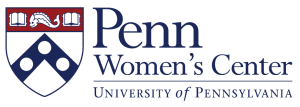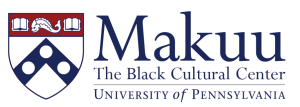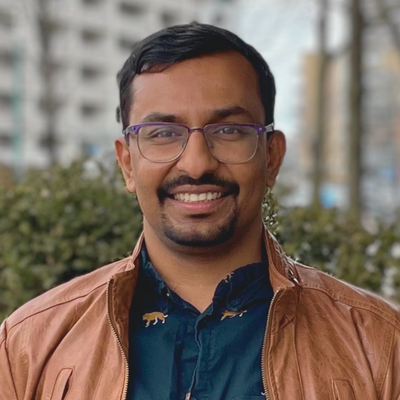
Join Penn Career Services for a week of virtual professional and career development programs that will support and enhance your experience at Penn as a first generation graduate student. This week of programming is supported by GAPSA, and presented in collaboration with a variety of student-focused offices across Penn’s campus, and we hope that you will take advantage of these programs to make the most of your time as a graduate student.
What is a first generation graduate student?
For this series of programs, we are defining this term broadly. A first-generation (first gen) graduate student is someone who is the first in their immediate family to attend graduate school and pursue a graduate degree. This can include master’s or doctoral program in a variety of fields such as business, law, medicine, or the sciences. First gen graduate students can face unique challenges as they navigate the graduate school experience without the guidance or support of family members who have gone through the process before them. A first-generation graduate student can also refer to international students who are the first in their immediate family to study in the United States for a graduate degree. These students may face additional challenges, such as cultural and language barriers, as well as the added stress of being away from home and family. They also may not have the same level of support and guidance from their family as they navigate the unfamiliar education system and cultural landscape of the United States.
Presented and co-sponsored by:










: Navigating imposter syndrome and self-confidence as a first-generation graduate student to build hope and resilience for success.
In his keynote, Dinuka Gunaratne (he/him) discusses the intricacies of navigating imposter syndrome through various intersectionalities, including his experience as a first-generation graduate student. Drawing from his own experiences as an international, first-generation student from Sri Lanka, Dinuka shares how he navigated his own imposter syndrome, from feeling like he didn’t belong or was not good enough to finding his way to purpose, meaning, and greater confidence. Through introspection and reflection, he has made sense of the complex feelings associated with imposter syndrome and shares his learnings, reflections, and tips with the audience. Dinuka uses powerful student stories from his professional work with graduate students and their lived experiences to inspire the audience that imposter syndrome and being first-generation student can help bring out their best selves and embrace their identities.

Dinuka Gunaratne (he/him) brings 15 years of experience as a post-secondary leader supporting the success of university students through his employment at seven post-secondary institutions in Canada and the US, including the University of Alberta, the University of Waterloo, the University of Toronto, and Northeastern University. In addition to his career in postsecondary education, Dinuka is also an active member of numerous professional associations and actively contributes to the professional development of graduate student career development and student affairs. He is a past president of the Graduate and Postdoctoral Development Network in Canada (GPDN), a member of the board of directors of the Canadian Association of College and University Student Services (CACUSS), co-chair of the Content and Learning Advisory Committee of the Centre for Education Research in Counselling (CERIC), co-chair of four pan-Canada and US communities of practice through the Graduate Career Consortium (GCC), and a member of numerous committees and working groups. As a certified Anti-Racism Response Training (A.R.T) trainer, Dinuka is deeply committed to fostering equitable diversity, inclusion, and belonging, informed by his experience as a first-generation immigrant and former international student. By invitation, he has contributed to numerous institution-wide strategic planning and working groups, including the Race in Academe Advisory Committee (U of A), Inclusive Communications Advisory (UWaterloo), and the Institutional Employee Equity Data Governance and Survey Development Committee (U of T). Dinuka has a distinguished record of conference presentations focusing on EDI, anti-racism, and accessibility, as well as graduate student development, and was awarded the CACUSS Leaders in Learning Award in 2022 for championing learning initiatives for student affairs professionals across Canada. He was the inaugural Director of the Tri Campus Centre for Graduate Professional Development at the University of Toronto and is currently the Director of Career Development and Experiential Learning at Northeastern University Vancouver Campus in British Columbia, Canada.
First Gen Family – Managing your graduate experience at Penn as a parent, caretaker, or future parent – and strategies for your career next steps
r. Learn about some of the common questions and concerns that students and postdocs have as parents/caretakers as they are searching for jobs. Find out how networking can help you to identify roles and organizations that are truly family-friendly, and when to bring up personal family matters when interviewing and negotiating. Learn about and take advantage of resources and communities on Penn’s campus that support student/postdoc parents and caretakers.
Theme 2: Professional Identity Day
Making LinkedIn work for you and your graduate degree
LinkedIn can be an effective tool to help you keep track of your academic and professional growth as a graduate student. In this workshop, we will highlight ways to update your profile to reflect the knowledge and experiences you are gaining with your graduate degree, and to highlight elements of your professional identity. No matter your academic field, graduate students can highlight many aspects of their research as part of their professional experience, and can leverage LinkedIn to communicate research accomplishments and experiences to a broader audience. Join this session to get some best practices for making your LinkedIn profile a dynamic illustration of your skills, experiences, knowledge, and professional value.
Effective networking on campus and beyond – creating your professional narrative
As a first gen graduate student, growing your network on Penn’s campus and beyond is an important part of making sure you have information on best practices for being a graduate student, and ideas about career paths you are interested in or that you may currently not know much about. Building professional relationships with current students/postdocs, with faculty and staff, and with Penn alumni, will help you to develop your own professional identity as you position yourself for future careers. In this session will will highlight some of the platforms you can use for networking (e.g., myPenn, LinkedIn, Handshake), some of the types of events that can be great places to make connections, and some of the questions you will want to be asking when you are networking (and just as importantly, what to do with these answers when you have them). Building a community of support will be instrumental in prioritizing your professional and emotional well-being as you navigate your graduate program and early career paths.
Theme 3: Life Skills Day
Negotiation strategies as a graduate student/postdoc and a future job seeker
Join us for a negotiation workshop tailored specifically for first-generation graduate students. Learn some effective communication best practices for your time on campus and beyond, tools to navigate difficult conversations, and gain a deeper understanding of how to become a better and more effective negotiator Whether advocating for yourself or others, or negotiating your next job offer, this workshop will provide you with some helpful tips.
Theme 4: Future paths
First Gen Global – Visa and career advice for international first gen graduate students
Join staff from Career Services and International Student & Scholar Services for a question and answer session where you can ask any questions you have about managing your career nest steps as an international graduate student or postdoc. What should you write on your resume about your visa status? How can you find out which companies sponsor H-1Bs? How can you find international alumni? When should you apply for OPT? What are some trends that international students/postdocs should be aware of as they think about career next steps? Share some of your questions in this sessions to get answers and resources to help you.
10 steps to help you feel less stuck, lost, or confused about your career next steps
Very few graduate students start their graduate program knowing with exact certainty what they want to do when they graduate. And even those who have clear career goals can often find that they change their mind over time. The majority of graduate student are stuck, lost, or confused about their career next steps at some point during their graduate program, and so you are in good company if you feel this way. In this session, we will share 10 steps to help you gain more certainty about the directions you can take as you think about future careers. We will also highlight the range of resources available to you that can support career exploration and ideation.




